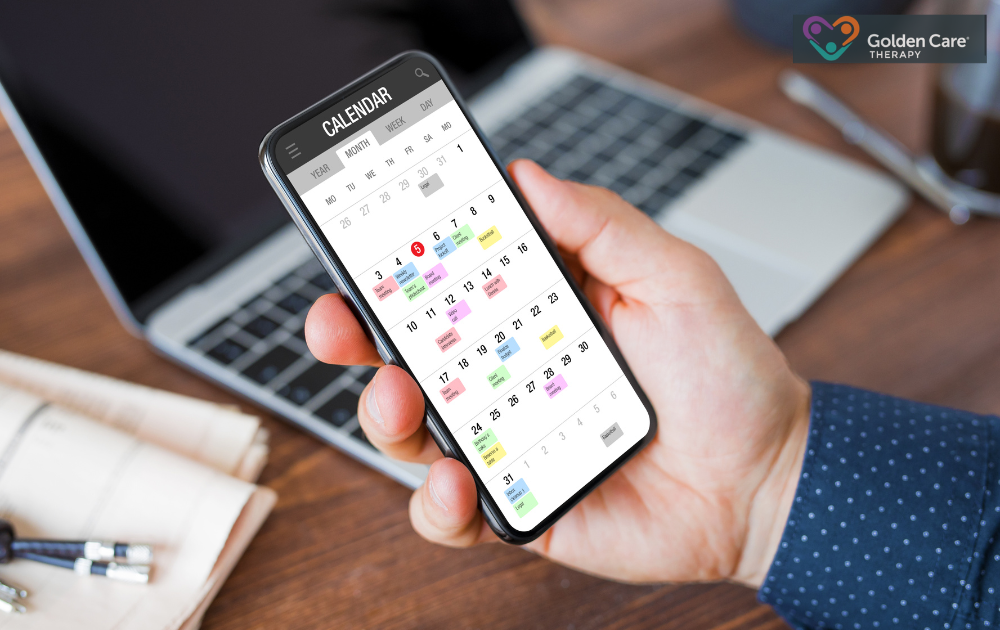Routine and structure are often essential for adults with autism, as they provide a sense of predictability and security. Disruptions to established routines can be particularly challenging, leading to heightened anxiety, stress, and difficulty functioning. Understanding how to cope with these changes is crucial for maintaining mental and emotional well-being.
Here, we’re going to look at some of the most effective strategies for managing routine disruptions among autistic individuals.

The Importance of Routine
For adults with autism, routines serve as a foundation for stability. They offer a structured way to manage daily activities, reducing the unpredictability that can cause anxiety. When routines are disrupted, it can feel as though the safety net has been pulled away, leading to overwhelming emotions and difficulties in adapting to new situations.
Recognizing the importance of routine is the first step in understanding the impact of its disruption and finding ways to cope.
Understanding the Impact of Routine Disruption
Disruptions to routine can arise from various sources, such as changes in work schedules, relocation, or even global events like the COVID-19 pandemic. These disruptions can trigger a range of responses, from mild discomfort to severe anxiety or meltdowns. It’s important to acknowledge these feelings and understand that they are valid. This recognition can help in developing strategies to manage these emotions effectively.
With that in mind, here are some effective strategies that could help.

Developing Flexibility
While routines are beneficial, developing some level of flexibility can help in coping with disruptions. Flexibility doesn’t mean abandoning routines altogether but rather building the capacity to adapt when changes occur. One way to foster flexibility is through gradual exposure to minor changes within the routine. This can help reduce the shock of larger disruptions and build resilience over time.
For instance, altering the order of daily tasks or introducing small variations can serve as practice for handling more significant changes.
Establishing a New Routine
When disruptions occur, establishing a new routine as quickly as possible can provide a sense of control and stability. This new routine doesn’t have to be a complete overhaul but rather an adjustment to accommodate the change.
For example, if a work schedule changes, integrating the new hours into a daily plan can help restore a sense of normalcy. Keeping certain constants, such as regular meal times or bedtime routines, can also provide anchor points that offer comfort and predictability.
Utilizing Visual Supports
Visual supports can be incredibly helpful in managing routine disruptions. Tools like calendars, schedules, and visual cues can provide a clear representation of what to expect, reducing uncertainty.
For adults with autism, visual supports offer a concrete way to see and understand changes, making them easier to accept. Incorporating visual aids into daily planning can help in adjusting to new routines and minimizing anxiety.

Seeking Predictability in Unpredictable Situations
Finding elements of predictability within unpredictable situations can provide a sense of security. This might involve identifying small, consistent aspects of the day that remain unchanged despite larger disruptions. For instance, maintaining a regular morning routine or continuing a favorite hobby can offer a sense of continuity. Even in chaotic circumstances, these predictable elements can serve as a grounding force.
Practicing Self-Care
Self-care is crucial in managing the stress that comes with routine disruptions. Engaging in activities that promote relaxation and well-being can help mitigate the negative impact of change. This might include exercise, mindfulness practices, or hobbies that bring joy and calm. Regular self-care routines can act as a buffer against stress and provide moments of respite during challenging times.

Seeking Support
Having a support system in place can make a significant difference in coping with routine disruptions. This support can come from family, friends, or support groups who understand the challenges faced by adults with autism. Communicating needs and concerns with trusted individuals can provide emotional support and practical assistance.
Professional support, such as therapy or counseling, can also offer strategies and tools to manage anxiety and stress effectively.
Cognitive Behavioral Techniques
Cognitive-behavioral techniques can be particularly effective in managing the anxiety associated with routine disruptions. These techniques involve identifying and challenging negative thought patterns that contribute to stress.
For example, reframing thoughts about the disruption from catastrophic to manageable can reduce anxiety. Techniques such as mindfulness and relaxation exercises can also help in maintaining emotional balance during times of change.
Developing Problem-Solving Skills
Enhancing problem-solving skills can empower adults with autism to handle routine disruptions more effectively. This involves breaking down the change into manageable parts and developing a plan to address each aspect.
For instance, if a relocation is causing stress, focusing on one task at a time, such as packing or finding new local resources, can make the process less overwhelming. Problem-solving skills can help in navigating changes with a sense of agency and control.
Building a Transition Plan
Creating a transition plan for anticipated changes can ease the adjustment process. This plan can outline steps to take before, during, and after the change, providing a clear roadmap.
For example, if a job change is anticipated, the plan might include researching the new role, preparing for the first day, and establishing a new work routine. A well-thought-out transition plan can reduce uncertainty and provide a structured approach to managing change.

Utilizing Technology
Technology can be a valuable tool in managing routine disruptions. Apps and devices that offer reminders, scheduling, and organization can help maintain structure even in changing circumstances.
For example, calendar apps can keep track of new schedules, while reminder apps can prompt important tasks. Utilizing technology can enhance independence and provide support in adapting to new routines.
Practicing Patience and Compassion
It’s important to practice patience and compassion towards oneself during times of routine disruption. Recognizing that adjusting to change takes time and allowing oneself to experience and process emotions can reduce self-imposed pressure. Being kind to oneself and acknowledging efforts to cope can foster a positive mindset and resilience.
Professional Guidance
Seeking professional guidance can provide tailored strategies and support for managing routine disruptions. Therapists, counselors, and autism specialists can offer personalized approaches that cater to individual needs. Professional guidance can also provide a safe space to discuss challenges in daily life and develop effective coping mechanisms.
The Key Takeaway
Routine disruptions can be challenging for adults with autism, but with the right strategies, they can be managed effectively. All of the strategies above are key approaches that can help manage and even mitigate stress among autistic individuals.
By incorporating these coping tips, adults with autism can navigate routine disruptions with greater ease and resilience, which allows them to maintain their well-being and quality of life. For those seeking additional support and specialized therapies, consider exploring NYC autism services, Indiana, New Jersey, Georgia, and Florida. Golden Care Therapy offers personalized services tailored to meet individual needs. Contact us today to learn more or book a consultation.
Sources:
https://autismawarenesscentre.com/coping-with-changes-in-routines
https://www.additudemag.com/autism-resources-adults-pandemic
https://www.autism.org.uk/advice-and-guidance/topics/behaviour/dealing-with-change/all-audiences
https://www.autismparentingmagazine.com/coping-skills-reducing-overwhelm



